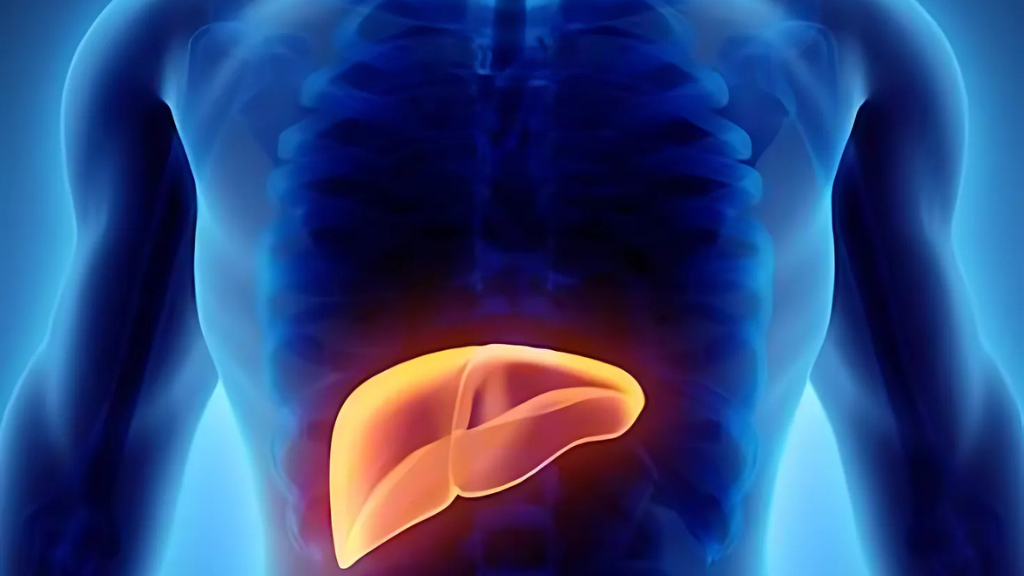The liver is one of the most vital organs in the human body. Often called the body’s natural detoxifier, it performs hundreds of critical functions, including breaking down toxins, producing bile, processing nutrients, and regulating hormones. But like any hardworking system, your liver needs proper care to stay healthy.
In this in-depth guide, we’ll explore how the liver functions, what liver detoxification really means, and how to naturally support your liver through lifestyle, diet, and simple daily habits — without relying on trendy or ineffective detox gimmicks.
What Does the Liver Do?
The liver plays a central role in maintaining overall health. It:
- Filters and removes toxins from the blood
- Breaks down medications, alcohol, and metabolic waste
- Produces bile to help digest fats
- Stores essential vitamins and minerals (like iron and vitamin A)
- Converts excess glucose into glycogen for energy storage
- Regulates cholesterol and hormone levels
Because the liver is involved in such a wide array of metabolic processes, any dysfunction can have ripple effects throughout the body — from fatigue and skin problems to digestion issues and hormonal imbalance.
What Is Liver Detoxification?
Many products on the market advertise liver “cleanses” or “flushes,” often claiming to remove built-up toxins. However, the liver naturally detoxifies the body every day. It doesn’t need extreme cleanses — it needs support.
Liver detoxification refers to the body’s natural two-phase process to break down toxins and eliminate them:
- Phase 1 Detox: The liver modifies toxins into intermediate compounds.
- Phase 2 Detox: These intermediates are further processed to become water-soluble and excreted via bile or urine.
What’s important is maintaining a lifestyle that supports this natural process. Fad detoxes that include starvation diets, excessive supplements, or juice-only fasts can actually do more harm than good.
Signs Your Liver May Need Support
While the liver is resilient, certain symptoms may indicate it’s under stress:
- Persistent fatigue
- Digestive discomfort (bloating, gas, indigestion)
- Skin issues like acne or rashes
- Unexplained weight gain or fluid retention
- Poor tolerance to alcohol
- Hormonal imbalances
- Mental fog or mood swings
If you notice any of these, it may be time to evaluate your lifestyle and make adjustments that support liver function.
Natural Ways to Support Liver Health
You don’t need expensive pills or crash diets to support liver detoxification. Here are evidence-based ways to give your liver the help it needs:
1. Eat a Liver-Friendly Diet
Nourishing your body with whole, nutrient-dense foods provides the liver with the tools it needs to detoxify effectively.
Foods that support liver health:
- Cruciferous vegetables (broccoli, kale, Brussels sprouts): Rich in compounds that enhance Phase 2 liver detox enzymes.
- Leafy greens: Help neutralize metals, chemicals, and pesticides.
- Garlic and onions: High in sulfur, which helps in detoxification.
- Citrus fruits: Provide vitamin C and antioxidants.
- Beets and carrots: High in plant flavonoids and beta-carotene.
- Turmeric: Contains curcumin, a compound with strong anti-inflammatory and liver-protective properties.
Foods to avoid or minimize:
- Processed foods
- Excessive sugar and refined carbohydrates
- Alcohol
- Hydrogenated oils and trans fats
- Artificial sweeteners and additives
2. Stay Hydrated
Water is essential for flushing toxins from the body. Aim for 8–10 glasses of water per day, more if you’re active or in a hot climate.
3. Limit Alcohol and Drug Intake
Alcohol is a major liver stressor, especially in large or regular amounts. Similarly, overuse of over-the-counter medications (like acetaminophen) can strain liver function. Always follow dosage guidelines and consult a doctor when combining medications.
4. Exercise Regularly
Physical activity helps regulate body weight, improve circulation, and reduce liver fat. Aim for at least 150 minutes of moderate aerobic exercise per week — such as brisk walking, swimming, or cycling.
5. Get Adequate Sleep
Sleep allows your body to heal and regenerate. Poor sleep has been linked to liver stress and insulin resistance. Try to get 7–9 hours of quality sleep each night.
6. Support Your Gut Health
There’s a strong connection between gut and liver function, known as the gut-liver axis. A healthy gut microbiome reduces the burden of endotoxins on the liver.
Support your gut by consuming:
- Probiotic-rich foods (yogurt, kefir, sauerkraut)
- Prebiotic fibers (onions, garlic, bananas, oats)
- Plenty of water and fiber to support digestion
7. Consider Liver-Supporting Supplements (With Caution)
Some natural supplements may aid liver health, but always consult a healthcare provider before starting anything new.
Common supplements with liver-support potential:
- Milk Thistle (Silymarin): May help protect liver cells and support regeneration.
- N-Acetyl Cysteine (NAC): A precursor to glutathione, the liver’s most powerful antioxidant.
- Alpha-Lipoic Acid: May reduce oxidative stress in liver tissues.
- Dandelion Root: Traditionally used to support bile flow.
Remember: supplements are not a substitute for a healthy lifestyle.
Myths About Liver Detoxing
Let’s debunk some popular myths:
- “You need a detox cleanse after drinking alcohol.”
Not true. The liver will detox itself as long as you stop drinking and stay hydrated. - “Juice cleanses detox your liver.”
While juices may provide vitamins, they lack the fiber and protein needed for real detox support and may spike blood sugar. - “Detox teas remove toxins.”
Many contain laxatives and diuretics that simply cause water loss — not toxin removal.
When to See a Doctor
If you experience persistent fatigue, jaundice (yellowing of skin/eyes), swelling in the abdomen, or other concerning symptoms, consult a medical professional. Liver diseases can be serious, and early detection is key.
Final Thoughts: Detox Daily, Naturally
You don’t need expensive detox kits or harsh cleanses. Supporting your liver is about consistent, healthy habits — eating nourishing foods, staying active, sleeping well, and avoiding toxins. When you take care of your body, your liver will take care of you.
Explore more health tips on our blog:
- The Ultimate Guide to Liver Detoxification
- High Fructose Corn Syrup and How to Avoid It






Pingback: Daily Wellness Habits for Glowing Skin and Better Health